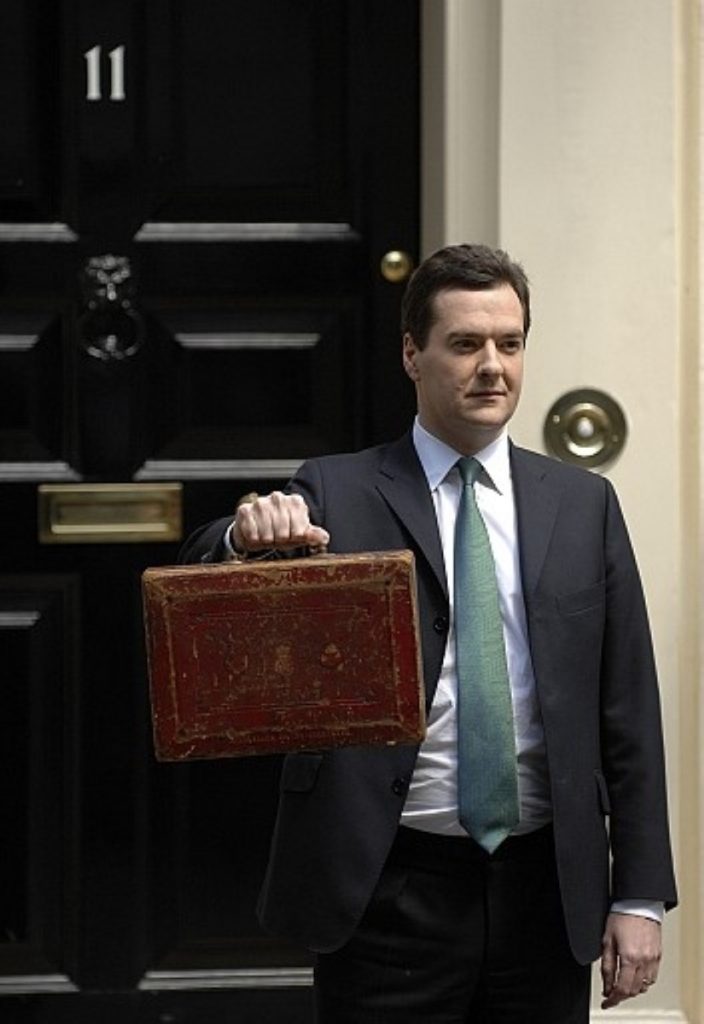Budget 2012 preview: At the crossroads of recession and recovery
The 2012 Budget is critical to the UK's economic recovery, but its political emphasis will be focused firmly on mitigating the harsh effects of austerity on the poorest.
By Oliver Hotham
George Osborne has received tips from all sides in an atmosphere of intense politicking. So what can we expect to be announced on March 21st?
In the autumn statement, usually a preview of what the next year's Budget will contain, the chancellor emphasised the need for rapid deficit reduction, as well as a focus on supply side economic policies like low interest rates and tax credits.


Osborne said in the autumn statement that the government will be attempting to reduce borrowing by £127 billion in 2012/13, with an aim to eliminate Britain's underlying deficit within five years.
This Budget isn't just about sticking with 'plan A', however. The political focus is on its attempts to alleviate the impact of austerity on Britain's poorest. There are reports that Cameron has told Osborne to find £500 million to soften the blow from child benefit cuts, and this will be only one of several measures the government will take to reduce the harshness of austerity.
There are a number of ways in which the chancellor might soften the blow for working people.
Many predict Osborne will raise the personal allowance (the amount one can earn before paying income tax), implement a tax relief on pension contributions, and/or scrap the 50p tax rate.
Whether or not the Budget will introduce the mansion tax is another question. This is more of a political issue, as it is supported by the Lib Dems in return for scrapping the 50p rate.
The tax is heavily opposed by the business community and many Conservatives, however, and Osborne may have to push his colleagues to convince them that raising taxes on the rich is the only way to give the poor a tax cut.
The chancellor is also expected to reduce fuel duty, a popular policy and described as Osborne's potential "rabbit out of the hat" for the Budget.
He has also come under intense pressure over taxes.
Liam Fox, in an article in the Financial Times, called on the chancellor to cut taxes on business to secure growth, echoing the CBI's call for "targeted and modest" tax cuts.
Boris Johnson called for the chancellor to abolish the stamp duty "holiday", a loophole that allows owners of high-value homes to avoid stamp duty.
There is broad consensus within the coalition that a tax cut for low-income families is essential to warding off the worst effects of spending cuts, but the question is how to fund it. Osborne responded to the calls for tax cuts by emphasising: "Any tax cut would have to be paid for."
There are countless other demands on the chancellor: extending the youth contract, expanding the Enterprise Investment Scheme, etc.
Youth unemployment is at its highest in years, so the chancellor is under pressure to extend the youth contract to broaden possibilities for young people, as well as to introduce policies which will encourage job creation in the private sector. Osborne will have to come up with a serious solution to avail the fears of a "lost generation" and the problems of NEETs (the growing numbers of young people not in education, employment or training).
The chancellor will be looking to use the 2012 Budget to defend his economic policies. The British economy seems to be recovering – British manufacturing output increased in last quarter of 2011 and companies like Tesco and Nissan are announcing thousands of new jobs.
It will be an attempt to one-up the opposition, whose line has been that the goverment's austerity measures have hampered growth.
Whatever happens, this is an extremely important Budget. As Britain stands on the crossroads between recession and recovery, the policies Osborne announces in seven days will define the next year.









